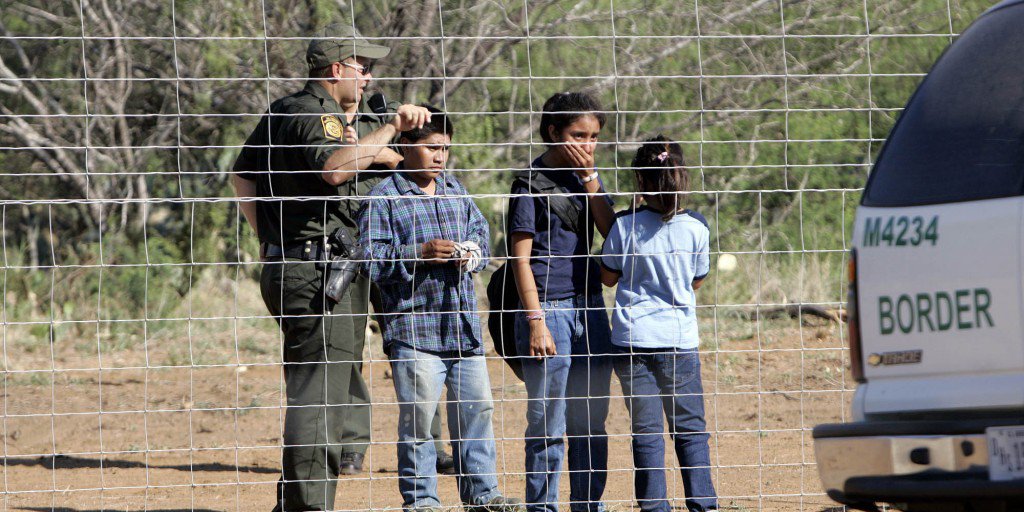
Shortly after President Trump signed executive orders temporarily banning citizens from seven predominately Muslim countries and increasing deportations for undocumented immigrants, outraged Americans organized protests and championed the phrase, “We are a nation of immigrants.” Even Facebook founder Mark Zuckerberg endorsed this sentiment on a Facebook post: “My great grandparents came from Germany, Austria and Poland. Priscilla's parents were refugees from China and Vietnam. The United States is a nation of immigrants, and we should be proud of that,” he said.
However, while many Americans are descendants of immigrants, and Trump’s actions are reprehensible, the attempts to promote inclusiveness are also exclusive.
Contrary to popular belief, the notion that the United States is a “nation of immigrants” only emerged after World War II in an effort to promote pluralism. As the country attempted to change its global image during the Cold War, liberal intellectuals and politicians noted the inherent racism of the quota system and advocated for inclusiveness. Additionally, the "nation of immigrants" motto ignores America's history of colonialism, conquest and forced migration. Besides African Americans and Native Americans, the two most well-known non-immigrant groups, there are other non-immigrant groups that Americans rarely think about, such as Native Hawaiians and Puerto Ricans, who were both colonized.
In Impossible Subjects, Columbia University professor Mae Ngai noted that some of the first proponents of the “nation of immigrants” slogan, like then-Senator John F. Kennedy, had a Euro-centric focus. The descendants of European immigrants celebrated their rise into the middle class and declared their experience as “typical of American history." However, these individuals had little to say about Asians and Latinos and were ambivalent about third-world immigration. Even the first individuals who championed this triumphant narrative didn’t truly mean “we.”
Acknowledging the reality that not all Americans are immigrants also requires confronting the history of colonialism, conquest and forced migration. It’s common knowledge that Europeans brought the majority of African Americans over in slave ships from the Caribbean and pushed Native Americans further West through treaties and military conquest. But Americans rarely acknowledge groups incorporated through colonialism.
Native Hawaiians and Puerto Ricans combined make up a small percentage of the population and are geographically concentrated in certain regions of the country. As a result, Americans think little about them. However, they are integral to American history. The United States annexed Hawaii in 1898 years after overthrowing the Queen and acquired Puerto Rico in the aftermath of the Spanish-American War. Puerto Ricans became U.S. citizens in 1917 to help the United States in World War I. In 1952, the U.S. made Puerto Rico a commonwealth. Hawaii was granted statehood in 1959. Despite many challenges that exist today in both communities, such as poverty, their incorporation into the U.S. makes their experiences radically different from the traditional immigration narrative.
This view of history is rarely cited in mainstream immigration discussions because it contradicts the narrative of foreigners traveling to the United States for a better life. We know that African Americans and Native Americans are the exception, but limiting this fact to these two groups downplays America's history of imperial expansion. Nations generally expand through military conquest, and Americans traditionally extol tales of brave pioneers settling westward. But westward expansion and America’s imperial project came at the expense of other groups, a factor that is rarely discussed.
Continuing to call ourselves a “nation of immigrants” also risks homogenizing the immigrant experience. It is assumed that all immigrants arrive with little, but will have the same experiences as European immigrants did in the early and mid-twentieth century. This narrative overlooks the fact that since 1965, the United States has prioritized high-skilled immigrants. For example, since the 1980s, Argentinian and Colombian immigrants who have come to the U.S. had a higher educational attainment than the national average. We cannot keep assuming that all immigrants arrived on equal footing and those who became successful did so simply because they worked hard, which implies that “unsuccessful” groups lack work ethic.
It’s heartening to see so many Americans stand in solidarity with those impacted by Trump’s executive actions. Reminding others that the United States is a “nation of immigrants” is done with good intentions. However, this phrase is equally exclusive and historically inaccurate. It further demonstrates Americans’ inability to recognize intersectionality and the diverse experiences of certain groups. We cannot forge national unity by promoting national mythology.
3 WAYS TO SHOW YOUR SUPPORT
- Log in to post comments

















